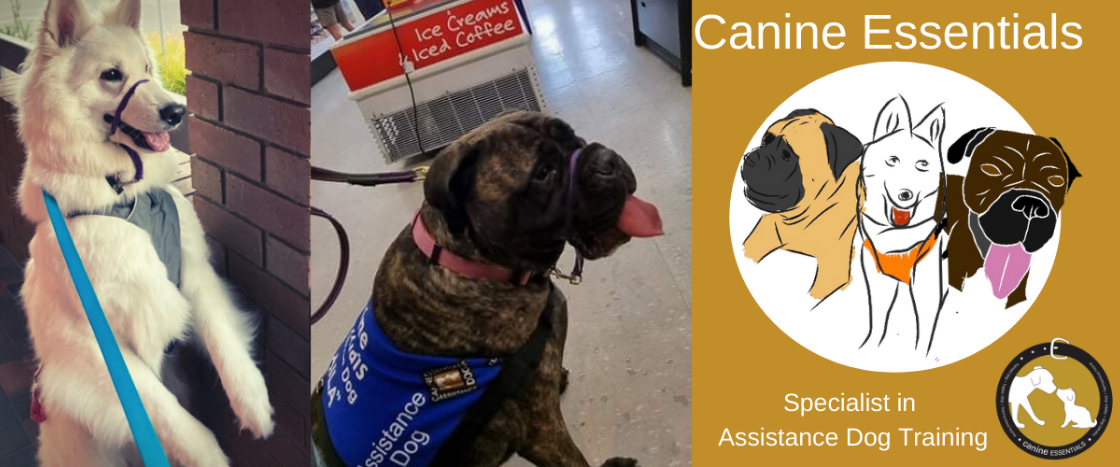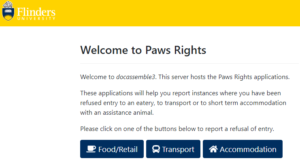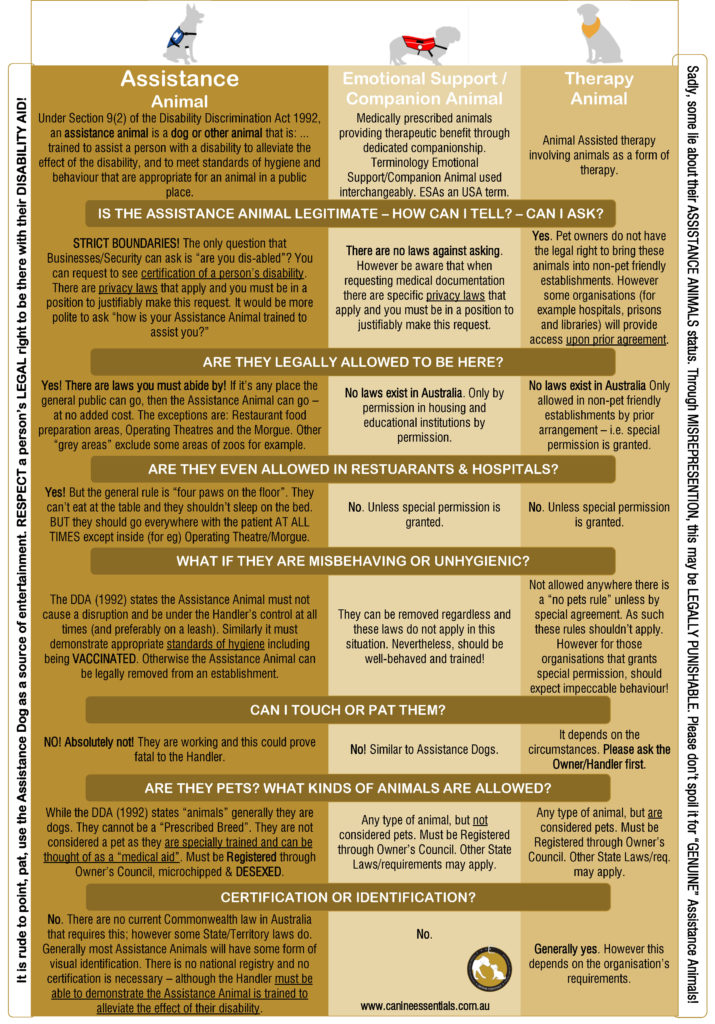Summary
Assistance Dogs provide assistance to individuals with disabilities (mobility, sight, hearing, and other physical and/or psychiatric issues). Assistance Dogs have public access rights and are protected by the Australian Federal Disability Discrimination Act 1992.
The right of public access
Assistance Dogs in Australia have very specific ‘rights’, namely the right of public access. This means that Assistance Dogs are allowed in public places and on public passenger vehicles. Businesses such as restaurants, hotels, shops, taxis, theatres and sports facilities must not refuse entry to an Assistance Dog – and strict penalties do apply if access is refused.
The legislative guidelines pertaining to Assistance Dogs are governed at both a Federal and a State level. Where there is conflicting laws on the same subject, Section 109 of the Australian Constitution stipulates that federal law overrides the state law (or, for example, the part of the state law that is inconsistent with the relevant part of the federal law).
How to get an Assistance Dog
In Australia, there are generally four options for a person that may require the services of an Assistance Dog. These are:
- Being accepted in to an organisation that will place an Assistance Dog with you.
- Being accepted in to an organisation that will assist you in training your own dog (subject to certain criteria being met).
- These organisations require you to pass their own Public Standards Assessment.
- These organisations may or may not be accredited by state authorities.
- Training your own dog to Assistance Dog standards and applying to sit the Public Access Test through a state government body.
- Training your own dog to meet standards of hygiene and behaviour that are appropriate for an animal in a public place.
Note that in all, it is generally a requirement that a General Practitioner AND a Psychiatrist or Psychologist (in the case of a psychiatric disability) must specifically prescribe an Assistance Dog for your medical condition.
How they can help
Assistance Dogs can alleviate the symptoms in the following instances:
- Mobility Assistance Dogs
- Retrieval of items
- Aid in walking
- Placing items away in cupboards etc.
- Medic Alert Dogs
- Food allergies
- e.g. peanuts
- Food allergies
- Psychiatric Service Dogs
- PTSD
- Anxiety
- Depression
- Panic Disorder
However, before thinking about owner-trained Assistance Dogs, it is highly recommended that you think very carefully about utilising an Assistance Dog in your daily life.










